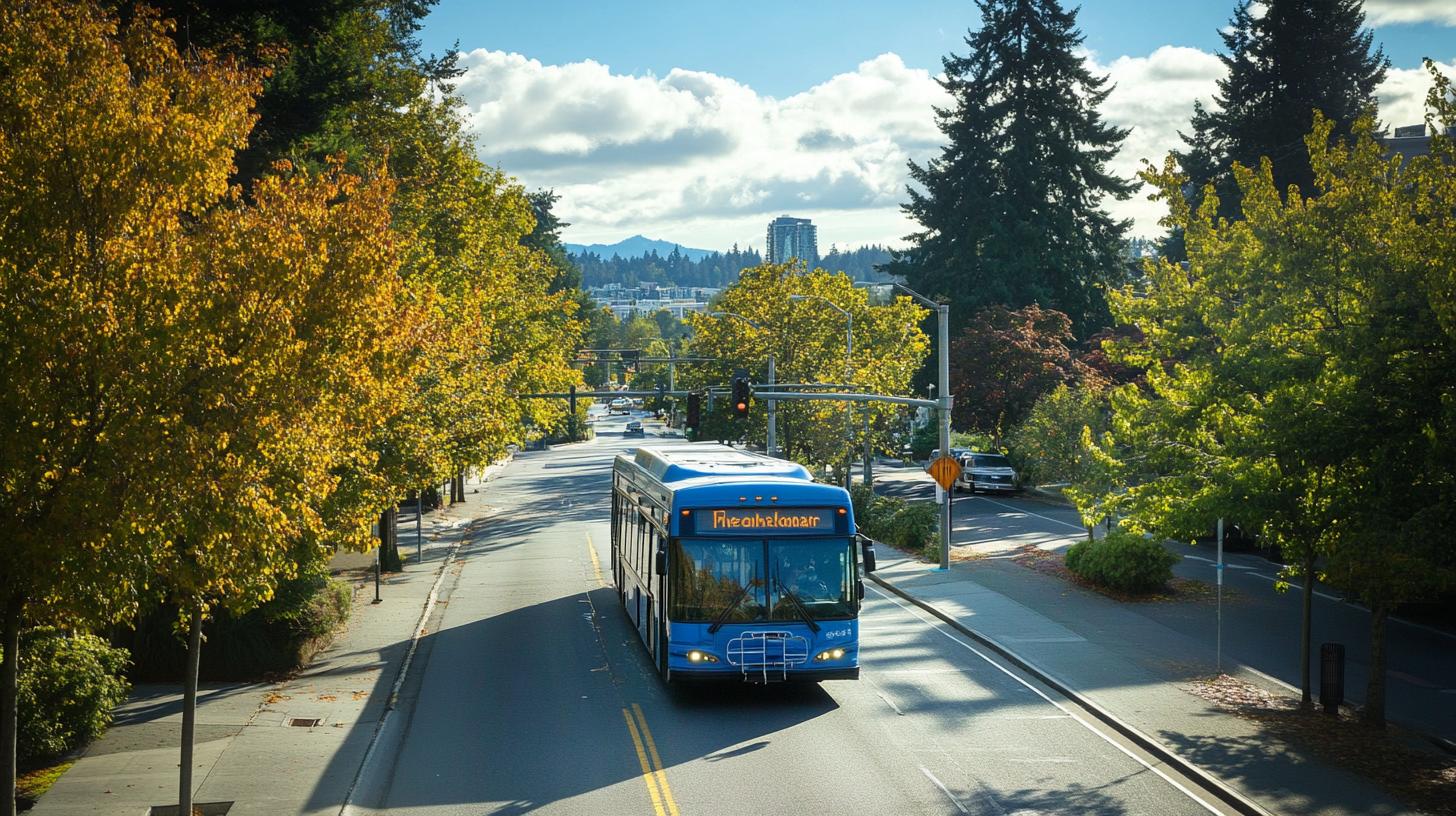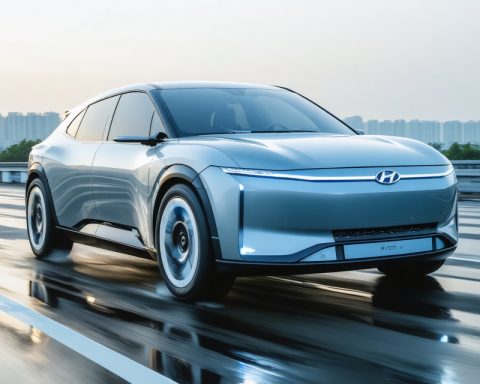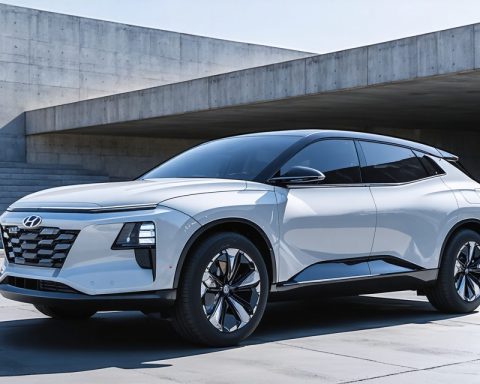TriMet has embarked on a groundbreaking project that aims to establish a hydrogen fuel-cell bus hub in a former industrial area. On October 17th, leaders from the agency and Oregon’s congressional team gathered to acknowledge the $69 million investment. This significant funding will facilitate the conversion of the site into an advanced base for hydrogen-powered buses serving the bustling 82nd Avenue corridor.
The Columbia Operations Facility is positioned to play a key role in TriMet’s commitment to zero-emissions transportation. Designed to accommodate 250 buses, the facility is set for completion by 2030. This eco-friendly endeavor aligns with TriMet’s broader objective to phase out diesel buses and fully transition to a zero-emissions fleet by 2040, alongside its recent shift to renewable diesel and the introduction of battery-electric buses.
TriMet’s General Manager Sam Desue Jr. indicated that this shift towards green technology is crucial for regional climate objectives. With Portland as a major transit hub, moving away from diesel could drive demand for green hydrogen solutions in the Pacific Northwest.
U.S. Representative Earl Blumenauer expressed optimism about what these investments mean for communities along 82nd Avenue. Historically burdened by heavy traffic, the street could become a symbol of integration and innovation through this ambitious project.
Key funding stems from federal initiatives like the U.S. Department of Transportation’s RAISE program and the Federal Transit Administration’s Low or No Emission Grant, with Representative Suzanne Bonamici acknowledging the essential federal support for such transformative projects.
The project promises to deliver economic opportunities by creating numerous green jobs in the region, while also enhancing public infrastructure around the Columbia facility. Residents are already witnessing road improvements and other developments aimed at supporting TriMet’s path to a cleaner, more sustainable future.
Revolutionizing Public Transport: The Impact of Hydrogen Fuel-Cell Buses on Communities and the Environment
The world is on the verge of a transportation revolution with the advent of hydrogen fuel-cell technology. This shift, exemplified by TriMet’s ambitious project to establish a hydrogen fuel-cell bus hub, presents far-reaching implications for people, communities, and countries. As the global community grapples with climate change, the move towards zero-emission transportation is no longer an option but a necessity.
The Environmental Impact
Hydrogen fuel-cell buses offer a cleaner alternative to traditional diesel buses by emitting only water vapor and heat as byproducts. This transition significantly reduces air pollution, a pressing concern in urban areas plagued by smog and poor air quality. Cleaner air reduces public health risks, including respiratory illnesses and cardiovascular diseases, fostering healthier communities. Moreover, the transition contributes to climate change mitigation by significantly cutting down greenhouse gas emissions.
Economic Opportunities and Community Development
TriMet’s project promises to be a catalyst for economic growth, generating numerous green jobs in manufacturing, maintenance, and operation of hydrogen-powered buses. The development of such infrastructure requires skilled labor, fostering professional growth and boosting the local economy. Infrastructure improvements, such as enhanced roads and public facilities, are other benefits, leading to improved quality of life and increased property values in the community.
Moreover, clean transportation options can increase public transit use by offering a more appealing and environmentally friendly experience. A rise in public transit ridership can reduce traffic congestion, saving commuters time and decreasing vehicular emissions, which benefits society as a whole.
Global Implications and Challenges
Countries worldwide are watching projects like TriMet’s as potential blueprints for their public transportation systems. With global efforts to meet the Paris Agreement targets, the push for hydrogen technology in transportation is critical. Countries that pioneer such initiatives can position themselves as leaders in the burgeoning green economy.
However, the hydrogen revolution is not without its controversies. The production of green hydrogen, which is hydrogen produced via renewable energy sources, is still costly and technologically demanding. Critics argue that the industry’s current reliance on fossil fuels for hydrogen production undermines the environmental benefits. Additionally, the significant initial investment required for infrastructure development poses a challenge, especially for economically struggling regions.
The Way Forward
Despite these hurdles, the continued advancement and adoption of hydrogen fuel-cell technology remain paramount. Strategic collaborations and federal initiatives, like those backing TriMet’s project, play a crucial role in overcoming financial and technological barriers. As hydrogen technology becomes more mainstream, production costs are expected to decrease, making green hydrogen a more viable option globally.
In conclusion, hydrogen fuel-cell buses represent a promising step towards sustainable future transportation. TriMet’s pioneering project not only serves as a model for other regions but also demonstrates the critical role innovative solutions play in addressing environmental and economic challenges. By investing in green technology, countries, and communities can drive towards a cleaner, healthier, and more resilient future. For more insights into green transportation innovations, visit U.S. Department of Transportation and Federal Transit Administration.














